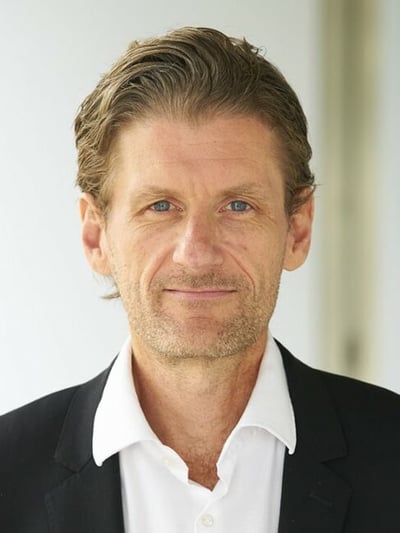Ahead of World Summit AI (11th-12th October 2023, Taets Art & Event Park, Amsterdam), we asked Andreas Hauser, CEO Digital Service at TÜV SÜD, his thoughts on the future of AI.
If you could solve any global problem in the world with AI, what would it be and why?
If I could harness AI to address any global challenge, I would focus on ensuring universal access to knowledge. I believe that well-informed societies make the most prudent decisions. By granting everyone access to knowledge, we can empower individuals and communities to effectively combat big challenges, such as climate change, safeguard the planet, and uphold human dignity as an untouchable principle. AI can play a crucial role in this endeavour because it can disseminate information widely. Nevertheless, any AI system must adhere to ethical standards to guarantee the responsible and equitable distribution of knowledge for the greater benefit of humanity.
What do you think are the 3 most important things for businesses in relation to AI at the moment?
Considering that AI plays a crucial role in determining the future competitiveness of organizations and its dynamic development, I believe the following aspects are key:
1. Take action immediately to avoid the risk of disruption.
2. Adopt an entrepreneurial approach with a higher risk appetite.
3. Remain adaptable and agile since businesses must stay flexible and agile in their strategies as AI evolves.
What do you think are the 3 most important things for humanity in relation to AI at the moment?
Firstly, we must adopt this technology as fast as possible, as pressing issues must be addressed now. I believe that technology used correctly is our only option, and AI is the most powerful and versatile one. Staying where we are or going backwards will worsen things, as we can see, for instance, in increasing carbon emissions or decreasing biodiversity.
Secondly, and this goes hand in hand with the first point, we must ensure that AI applications are safe, secure, reliable, and meet ethical principles. With its AI Act, the EU will play a leading role in this. Specific applications should also be simply forbidden, such as mass surveillance or manipulative applications.
Finally, we need to promote AI among the general population. A better understanding of AI empowers people to make better decisions.
How do you think AI will make its biggest mark in the next 5/10/20 years?
The crystal ball question. Painting the picture of our society in 2033, I envisage no more tedious preparations of presentation slides (ha ha). Seriously, we will have Autonomous Vehicles on the road, robots that make our life easier – today, robots still cannot clear the kitchen table -, a highly effective healthcare system with breakthroughs in drug discovery and personalised healthcare. AI will be part of our life as we use our mobile phones and the internet.
I also anticipate a revolution in education. Imagine a teacher can care for many students in a much more personalised way than we see today, using AI as super-intelligent co-pilots for them and the students. And, surely, I anticipate significant results in protecting the planet, given that we then know better how this dynamic system, our earth, works and what we have to do to protect it. Among other shortcomings, however, we probably won’t be that good anymore at reading maps. But this we already face in younger generations.
In terms of business, those that have effectively implemented AI to some extent will likely thrive while others may not survive. In short, success for businesses will likely be linked to their adoption of AI.

What advice would you give to executives as they determine how best to employ AI across their business?
As it is similar to digitalisation, the push must come from the top. Leadership is, from my understanding, most critical at this stage. Good leadership can transform any organisation into a data-centric and agile organisation where AI is deployed broadly – whether an MNC at a high digital maturity or an SME that hasn’t invested too much into this topic. The market is shaping now; hence, the push must come now.
What’s driving today’s progress in AI?
This is the amazing part. There is progress in Hardware, Software and Services which all come together. Moore’s Law is still valid, i.e., we will see a continuous increase in computing power, and AI foundation models, like Large Language Models, pave the way for countless of applications using these models. There will be many dwarfs sitting on the shoulders of powerful AI systems. This, combined with the widespread collection and availability of data through IoT and the internet has enhanced the abilities of AI to create applications that provide real value.
What will take AI capabilities to the next level?
To take AI capabilities to the next level, we need advanced algorithms, enhanced computing power, and high-quality data. Continued research, collaboration, and a focus on AI safety and security are essential to maximize AI's potential while ensuring responsible and beneficial use.
What 2 people to do you admire most in the world of AI in terms of their work?
I cannot really pick two people but would rather refer to the interviews conducted by Martin Ford in his book “The Architects of Intelligence”, where key people give their personal views on the development of AI.
What I do appreciate are the two protagonists, Yann LeCun and Yoshua Bengio with their very different positions on the risks of AI.
Why did you choose to present at the WSAI Series this year?
The WSAI is one of the prestigious platforms for AI where the latest aspects of AI are being discussed. With our AI quality approach, we believe that we can contribute to this discussion to help ensure that AI is safe, secure, reliable, and meets ethical standards.
What are your personal goals from the summit?
To continue expand my network and bring the topic of AI quality further into the center of the discussion as a key enabler.
What are you most excited about taking part in the WSAI Series?
To see many great advances in this exciting field.
Global AI events calendar
World Summit AI
11-12 October 2023
Amsterdam, Netherlands
World AI Week
9-13 October 2023
Amsterdam, Netherlands
World Summit AI Americas
24-25 April 2024
Montréal, Canada
Intelligent Health
11-12 September 2024
Basel, Switzerland
Share your content with the World Summit AI community
Got some interesting content you want to share with our community of over 220,000 AI Brains? You can send us anything from a published piece you have written online, white paper, article or interview. Submit it here

.png?width=259&name=WSAI%20Amsterdam%20Orange%20no%20dates%202000x300%20(1).png)
.png?width=263&name=IM_Mothership_assets_LOGO_MINT%20(2).png)

